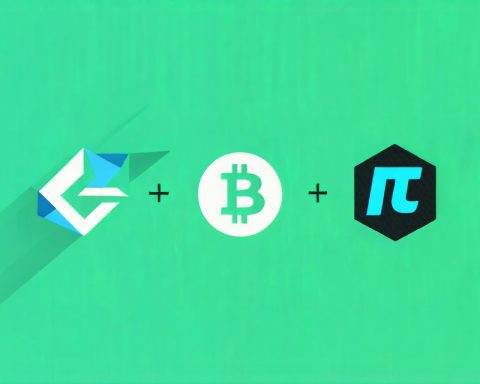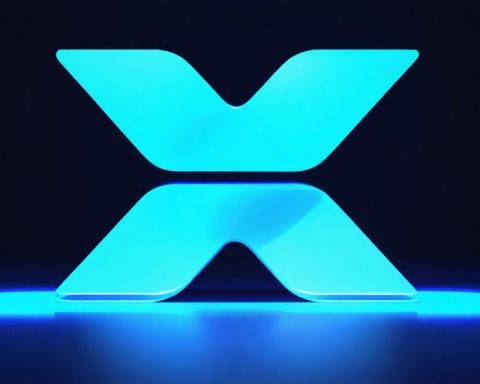How Blockchain-Based KYC Automation Solutions Will Transform Compliance and Customer Onboarding in 2025. Explore the Next Generation of Secure, Scalable Identity Verification.
- Executive Summary: Blockchain KYC in 2025 and Beyond
- Market Size, Growth Forecasts, and Key Drivers (2025–2030)
- Core Technologies Powering Blockchain-Based KYC Automation
- Competitive Landscape: Leading Providers and Innovators
- Regulatory Environment and Global Compliance Trends
- Integration with Financial Institutions and Fintech Platforms
- Security, Privacy, and Data Sovereignty in Blockchain KYC
- Case Studies: Real-World Deployments and Measurable Impacts
- Challenges, Barriers to Adoption, and Mitigation Strategies
- Future Outlook: Emerging Trends and Strategic Opportunities
- Sources & References
Executive Summary: Blockchain KYC in 2025 and Beyond
In 2025, blockchain-based Know Your Customer (KYC) automation solutions are rapidly transforming the landscape of digital identity verification and compliance. As regulatory scrutiny intensifies and financial institutions seek to streamline onboarding while reducing fraud, blockchain’s decentralized, tamper-evident architecture is emerging as a cornerstone for next-generation KYC systems. The adoption of these solutions is being driven by a convergence of regulatory mandates, technological maturity, and the need for cross-border interoperability.
Key industry players are deploying blockchain-powered KYC platforms that enable secure, real-time sharing and validation of customer data across institutions, reducing duplication and manual processes. R3, a leading enterprise blockchain software firm, has partnered with major banks to develop Corda-based KYC utilities, allowing participants to manage and update customer information collaboratively while maintaining privacy and regulatory compliance. Similarly, IBM is leveraging its blockchain expertise to offer KYC solutions that integrate with existing banking infrastructure, focusing on data integrity and auditability.
In the Asia-Pacific region, HSBC has piloted blockchain KYC platforms to facilitate secure information exchange between banks and regulators, aiming to reduce onboarding times from weeks to days. Meanwhile, State Bank of India is exploring blockchain-based KYC to address the challenges of identity fraud and streamline customer verification in one of the world’s largest banking markets.
The European Union’s push for digital identity frameworks, such as the eIDAS 2.0 regulation, is accelerating the integration of blockchain in KYC processes, with several consortia and financial institutions collaborating on interoperable, privacy-preserving solutions. The decentralized nature of blockchain allows customers to control their identity data, granting access to institutions as needed, which aligns with evolving data protection standards.
Looking ahead, the outlook for blockchain-based KYC automation is robust. Industry experts anticipate that by 2027, a significant proportion of global financial institutions will have adopted or piloted blockchain KYC platforms, driven by cost savings, enhanced security, and regulatory compliance. Ongoing innovation from technology providers and financial consortia is expected to further reduce friction in customer onboarding, support real-time compliance, and enable seamless cross-border financial services.
In summary, blockchain-based KYC automation solutions are poised to become a foundational element of digital identity management in the financial sector, offering a secure, efficient, and scalable approach to regulatory compliance in 2025 and beyond.
Market Size, Growth Forecasts, and Key Drivers (2025–2030)
The market for blockchain-based Know Your Customer (KYC) automation solutions is poised for significant expansion between 2025 and 2030, driven by increasing regulatory demands, the need for cost-efficient compliance, and the growing adoption of digital identity frameworks. As financial institutions, fintechs, and other regulated entities seek to streamline onboarding and reduce fraud, blockchain’s decentralized and tamper-evident architecture is gaining traction as a foundation for next-generation KYC platforms.
By 2025, several major financial institutions and technology providers are piloting or deploying blockchain-based KYC solutions. For example, HSBC Holdings plc has been involved in blockchain KYC consortia, exploring shared digital identity utilities to reduce duplication and improve customer experience. Similarly, JPMorgan Chase & Co. has invested in blockchain infrastructure, with its Onyx division developing distributed ledger applications for financial services, including identity management. Technology firms such as IBM and Oracle Corporation are offering enterprise blockchain platforms that support KYC automation, enabling secure data sharing and consent management across institutions.
The Asia-Pacific region is emerging as a key growth area, with regulatory sandboxes and government-backed initiatives accelerating adoption. For instance, the Monetary Authority of Singapore has supported blockchain KYC pilots, and several Indian banks have joined blockchain-based KYC networks to address the country’s vast unbanked population. In the Middle East, the UAE’s KYC Blockchain Platform, developed in partnership with Emirates NBD and other banks, is operational and expanding its reach.
Key drivers fueling market growth include:
- Rising regulatory scrutiny and anti-money laundering (AML) requirements, which demand more robust and auditable KYC processes.
- Cost pressures on financial institutions, with blockchain promising to reduce duplication and manual verification costs by enabling data reuse and secure sharing.
- Customer demand for faster, digital-first onboarding experiences, which blockchain-based KYC can facilitate through self-sovereign identity models.
- Increasing cross-border financial activity, necessitating interoperable and standardized KYC frameworks.
Looking ahead to 2030, the market outlook is optimistic. As interoperability standards mature and more regulators recognize blockchain-based KYC records, adoption is expected to accelerate across banking, insurance, capital markets, and even non-financial sectors. The entry of global technology providers and the formation of industry consortia are likely to drive further innovation and scalability, positioning blockchain-based KYC automation as a cornerstone of digital trust infrastructure worldwide.
Core Technologies Powering Blockchain-Based KYC Automation
Blockchain-based Know Your Customer (KYC) automation solutions are rapidly evolving, leveraging a suite of core technologies to address the inefficiencies and security challenges of traditional KYC processes. As of 2025, these solutions are underpinned by several foundational technologies that collectively enable secure, decentralized, and user-centric identity verification.
At the heart of these systems is distributed ledger technology (DLT), which provides an immutable and transparent record of identity verification events. By storing KYC data on a blockchain, institutions can ensure data integrity and facilitate secure sharing of verified credentials among authorized parties. Leading blockchain platforms such as ConsenSys (developer of the Ethereum-based Quorum blockchain) and R3 (creator of the Corda platform) are actively supporting KYC automation pilots and deployments for financial institutions and consortia.
Self-sovereign identity (SSI) frameworks are another critical component. SSI empowers individuals to control their personal data and selectively disclose information to service providers. Solutions like Sovrin Foundation and Evernym (now part of Avast) have developed decentralized identity protocols that allow users to store verifiable credentials in digital wallets, reducing the need for repeated KYC checks and minimizing data exposure.
Zero-knowledge proofs (ZKPs) are increasingly integrated into blockchain KYC platforms to enhance privacy. ZKPs enable users to prove the validity of their credentials (such as age or residency) without revealing the underlying data. This cryptographic technique is being adopted by projects like Polygon and ConsenSys to support privacy-preserving compliance in decentralized finance (DeFi) and regulated digital asset markets.
Interoperability standards are also gaining traction, allowing KYC data to be securely exchanged across different blockchains and institutions. The Hyperledger Foundation is advancing open-source frameworks such as Hyperledger Indy and Aries, which facilitate cross-platform identity verification and credential exchange.
Looking ahead, the convergence of these technologies is expected to drive broader adoption of blockchain-based KYC automation. Regulatory engagement is increasing, with financial authorities in Europe and Asia-Pacific piloting blockchain KYC sandboxes and digital identity initiatives. As interoperability and privacy standards mature, and as more financial institutions join blockchain consortia, the next few years are likely to see a shift toward scalable, user-centric KYC ecosystems that reduce compliance costs and improve customer experience.
Competitive Landscape: Leading Providers and Innovators
The competitive landscape for blockchain-based Know Your Customer (KYC) automation solutions in 2025 is characterized by a mix of established technology firms, specialized blockchain startups, and financial industry consortia. These players are leveraging distributed ledger technology to streamline identity verification, reduce compliance costs, and enhance data privacy for financial institutions and their customers.
Among the most prominent innovators is R3, whose Corda platform is widely adopted by banks and financial service providers for secure, permissioned data sharing. R3’s KYC solutions enable institutions to maintain control over customer data while allowing for efficient, auditable information exchange between trusted parties. In 2024, R3 expanded its ecosystem partnerships, integrating with digital identity providers and compliance platforms to offer end-to-end KYC automation.
Another key player is ConsenSys, a leader in Ethereum-based enterprise solutions. ConsenSys’ Codefi platform supports decentralized identity management and KYC workflows, enabling financial institutions to automate onboarding and ongoing due diligence. The company has collaborated with major banks and fintechs to pilot cross-border KYC solutions, aiming to reduce onboarding times from weeks to minutes.
In the Asia-Pacific region, HSBC Holdings plc has been at the forefront of blockchain KYC innovation. HSBC’s Digital Vault and KYC Registry initiatives leverage distributed ledger technology to securely store and share customer information among authorized institutions, reducing duplication and improving regulatory compliance. The bank’s ongoing investments in blockchain-based KYC are part of a broader digital transformation strategy, with further rollouts expected through 2025.
Startups such as Evernym (now part of Avast) and Sphereon are also making significant strides. Evernym specializes in self-sovereign identity (SSI) solutions, allowing users to control their personal data and share verified credentials with service providers as needed. Sphereon focuses on verifiable credentials and document automation, integrating blockchain with existing enterprise systems to facilitate compliant KYC processes.
Industry consortia, such as the Hyperledger Foundation, continue to play a pivotal role by fostering open-source frameworks and interoperability standards. Hyperledger’s Fabric and Indy projects are widely used as the backbone for KYC automation pilots and production deployments, particularly in regulated sectors.
Looking ahead, the competitive landscape is expected to intensify as regulatory mandates for digital identity and cross-border compliance increase. Collaboration between technology providers, financial institutions, and regulators will be crucial for scaling blockchain-based KYC solutions globally. The next few years are likely to see further consolidation, with leading innovators expanding their offerings through partnerships, acquisitions, and integration with emerging digital identity ecosystems.
Regulatory Environment and Global Compliance Trends
The regulatory environment for Know Your Customer (KYC) processes is undergoing significant transformation as financial authorities worldwide intensify their focus on anti-money laundering (AML) and customer due diligence. In 2025, blockchain-based KYC automation solutions are increasingly recognized as a means to enhance compliance, reduce costs, and improve data security. Regulatory bodies in major financial centers, including the European Union, Singapore, and the United Arab Emirates, are actively exploring or piloting frameworks that accommodate distributed ledger technology (DLT) for KYC purposes.
The European Union’s Markets in Crypto-Assets (MiCA) regulation, which comes into effect in 2024, sets a precedent for digital asset service providers to implement robust KYC and AML controls. This regulatory push has accelerated the adoption of blockchain-based KYC platforms, as these solutions offer immutable audit trails and facilitate secure data sharing among regulated entities. The Consensys platform, for example, has been involved in pilot projects with European banks to demonstrate how decentralized identity and KYC data sharing can align with MiCA requirements.
In Asia, Singapore’s Monetary Authority (MAS) continues to support innovation in digital identity and KYC through its Project Ubin and related initiatives. The regulator has encouraged the use of blockchain for secure, interoperable KYC utilities, with companies like R3 and Onfido participating in collaborative pilots. These projects aim to streamline onboarding and cross-border compliance, addressing the region’s complex regulatory landscape.
The United Arab Emirates, through the Dubai International Financial Centre (DIFC), has launched a blockchain-based KYC platform that connects financial institutions and government entities. This initiative, involving partners such as Smart Dubai, is designed to reduce duplication in KYC processes and ensure real-time compliance with evolving AML regulations.
Looking ahead, global compliance trends point toward greater regulatory acceptance of blockchain-based KYC, provided that solutions adhere to privacy, data protection, and interoperability standards. The Financial Action Task Force (FATF) has signaled openness to technological innovation, provided that core AML principles are maintained. As a result, leading blockchain KYC solution providers are investing in privacy-preserving technologies and standardized protocols to meet both local and cross-border regulatory requirements.
By 2025 and beyond, the convergence of regulatory clarity and technological maturity is expected to drive broader adoption of blockchain-based KYC automation, particularly in jurisdictions with progressive digital finance agendas. Ongoing collaboration between regulators, technology providers, and financial institutions will be critical to harmonizing standards and ensuring the scalability of these solutions on a global scale.
Integration with Financial Institutions and Fintech Platforms
The integration of blockchain-based Know Your Customer (KYC) automation solutions with financial institutions and fintech platforms is accelerating in 2025, driven by regulatory pressures, cost reduction imperatives, and the need for enhanced customer experience. Traditional KYC processes are often fragmented, repetitive, and costly, with global banks spending billions annually on compliance. Blockchain technology offers a decentralized, tamper-resistant ledger that enables secure, real-time sharing and verification of customer identity data across multiple institutions, reducing duplication and streamlining onboarding.
Major financial institutions are actively piloting and deploying blockchain-based KYC platforms. For example, HSBC Holdings plc has been involved in blockchain KYC consortia, exploring shared digital identity solutions to improve efficiency and compliance. Similarly, Standard Chartered has participated in blockchain KYC initiatives in Asia, collaborating with regional banks and fintechs to create interoperable digital identity frameworks. These efforts are often supported by industry utilities and consortia, such as the R3 Corda platform, which provides a distributed ledger infrastructure for secure data exchange among regulated entities.
Fintech platforms are also at the forefront of blockchain KYC integration. Companies like Onfido and Sphereon are developing blockchain-based identity verification solutions that allow users to control and share their verified credentials with multiple service providers, reducing friction and improving privacy. These platforms leverage self-sovereign identity (SSI) principles, where customers retain ownership of their data and grant access as needed, aligning with emerging data protection regulations.
In 2025, regulatory bodies in regions such as the European Union and Asia-Pacific are increasingly recognizing the potential of blockchain for KYC. The European Blockchain Services Infrastructure (EBSI), supported by the European Commission, is piloting cross-border digital identity and KYC solutions for financial services, aiming for broader adoption in the coming years. In Singapore, the Monetary Authority of Singapore (MAS) continues to support blockchain KYC pilots through its Project Ubin and related initiatives, fostering collaboration between banks and fintechs.
Looking ahead, the outlook for blockchain-based KYC integration is positive. As interoperability standards mature and regulatory clarity improves, more financial institutions are expected to adopt these solutions, leading to faster onboarding, reduced compliance costs, and enhanced security. The convergence of blockchain, digital identity, and regulatory technology (RegTech) is set to redefine KYC processes across the global financial ecosystem by the late 2020s.
Security, Privacy, and Data Sovereignty in Blockchain KYC
Blockchain-based Know Your Customer (KYC) automation solutions are rapidly evolving, with security, privacy, and data sovereignty emerging as central concerns for financial institutions and regulators in 2025. The decentralized nature of blockchain offers a compelling alternative to traditional, siloed KYC processes, enabling secure, tamper-resistant storage and sharing of identity data while giving users greater control over their personal information.
A key trend in 2025 is the adoption of permissioned blockchain networks for KYC, where only authorized participants can access or validate data. This approach is exemplified by R3’s Corda platform, which is being used by consortia of banks and financial service providers to streamline KYC processes while maintaining strict privacy controls. Corda’s architecture ensures that sensitive customer data is only shared on a need-to-know basis, reducing the risk of data breaches and unauthorized access.
Another significant player, Consensys, is advancing self-sovereign identity (SSI) solutions on Ethereum-based networks. These systems allow individuals to own and manage their digital identities, granting explicit consent for each data-sharing event. This model aligns with evolving global data protection regulations, such as the EU’s GDPR and similar frameworks in Asia and the Americas, which emphasize user consent and data minimization.
In Asia, HSBC has piloted blockchain KYC utilities in collaboration with regional banks, focusing on cross-border data sharing while complying with local data residency laws. These initiatives demonstrate how blockchain can facilitate secure, auditable KYC data exchanges across jurisdictions, addressing the challenge of fragmented regulatory environments.
Security remains paramount, with blockchain KYC solutions leveraging advanced cryptographic techniques such as zero-knowledge proofs (ZKPs) and multi-party computation (MPC). These technologies enable verification of identity attributes without exposing underlying personal data, significantly reducing the attack surface for cybercriminals. Companies like IBM are integrating ZKPs into their blockchain offerings, enhancing both privacy and compliance.
Looking ahead, the outlook for blockchain-based KYC automation is robust. Industry bodies and regulators are increasingly supportive of interoperable, standards-based solutions that balance innovation with risk management. As more financial institutions and fintechs adopt these platforms, the sector is expected to see improved onboarding efficiency, reduced compliance costs, and stronger safeguards for customer data sovereignty through 2025 and beyond.
Case Studies: Real-World Deployments and Measurable Impacts
Blockchain-based Know Your Customer (KYC) automation solutions have moved from pilot phases to real-world deployments, with measurable impacts on efficiency, compliance, and user experience. As of 2025, several financial institutions and technology consortia have implemented blockchain-driven KYC platforms, demonstrating tangible benefits and setting new industry benchmarks.
One of the most prominent examples is the HSBC KYC blockchain initiative. In partnership with other major banks, HSBC has deployed a distributed ledger platform to streamline KYC processes for corporate clients. The solution enables secure sharing and validation of customer data across participating institutions, reducing duplication and manual verification. According to HSBC, this has led to a reduction in onboarding times from weeks to days, while also improving data accuracy and auditability.
In the Asia-Pacific region, the Oversea-Chinese Banking Corporation (OCBC) has been a pioneer in blockchain-based KYC. OCBC, along with other regional banks, launched a KYC blockchain platform that allows for the secure exchange of customer information with explicit consent. The bank reports that the system has cut KYC processing times by up to 60%, significantly lowering operational costs and enhancing customer satisfaction.
Another notable deployment is the R3 Corda-based KYC solution, which has been adopted by a consortium of European banks. The platform leverages Corda’s privacy features to ensure that sensitive customer data is only accessible to authorized parties, while maintaining a tamper-evident audit trail. Early results indicate a substantial decrease in compliance costs and a marked improvement in regulatory reporting efficiency.
On the technology provider side, IBM has developed blockchain-based KYC modules as part of its financial services offerings. These solutions are being integrated by banks and fintechs to automate identity verification, reduce fraud, and ensure compliance with evolving regulations. IBM’s clients have reported faster onboarding and improved customer trust due to enhanced data security and transparency.
Looking ahead, the adoption of blockchain-based KYC automation is expected to accelerate, driven by regulatory encouragement for digital identity frameworks and the need for cross-border interoperability. Industry bodies such as the SWIFT community are exploring blockchain’s potential to standardize KYC processes globally, which could further amplify the measurable impacts observed in current deployments.
Challenges, Barriers to Adoption, and Mitigation Strategies
Blockchain-based Know Your Customer (KYC) automation solutions are gaining traction as financial institutions and fintechs seek to streamline compliance, reduce costs, and enhance data security. However, the adoption of these solutions in 2025 faces several significant challenges and barriers, even as industry leaders and consortia work to address them.
Key Challenges and Barriers
- Regulatory Uncertainty: Regulatory frameworks for blockchain-based KYC remain fragmented across jurisdictions. While some regulators are exploring digital identity and blockchain pilots, many have yet to provide clear guidance or recognize blockchain-based KYC as compliant. This uncertainty slows adoption, as institutions are wary of investing in solutions that may not meet future regulatory requirements.
- Interoperability and Standardization: The lack of universally accepted technical and data standards for blockchain KYC platforms hinders cross-border and inter-institutional collaboration. Multiple consortia, such as R3 and Hyperledger Foundation, are developing frameworks, but fragmentation persists, making it difficult for banks and fintechs to integrate solutions at scale.
- Data Privacy and Control: While blockchain offers enhanced security, concerns remain about data privacy, especially under regulations like GDPR. Ensuring that personal data is not exposed on public ledgers and that users retain control over their information is a technical and legal challenge. Solutions such as zero-knowledge proofs and permissioned blockchains are being explored, but widespread implementation is still evolving.
- Legacy System Integration: Many financial institutions operate on legacy IT infrastructure, making integration with blockchain-based KYC platforms complex and costly. The need for seamless interoperability with existing systems is a significant barrier, particularly for large, established banks.
- Trust and Adoption: Building trust among stakeholders—banks, regulators, and customers—is essential. Concerns about the immutability of blockchain records, potential for errors, and the need for recourse mechanisms in case of disputes remain unresolved for many institutions.
Mitigation Strategies and Industry Outlook
- Consortium-Led Pilots: Industry consortia such as R3 and Hyperledger Foundation are leading pilot projects to demonstrate regulatory compliance, interoperability, and technical feasibility. These pilots are expected to inform best practices and accelerate standardization efforts through 2025 and beyond.
- Regulatory Engagement: Ongoing dialogue between solution providers, financial institutions, and regulators is critical. Companies like IBM are actively collaborating with regulators to shape frameworks that recognize blockchain-based KYC, aiming to reduce uncertainty and foster adoption.
- Privacy-Enhancing Technologies: The adoption of advanced cryptographic techniques, such as zero-knowledge proofs, is being prioritized to address privacy concerns. These technologies allow verification of identity attributes without exposing underlying personal data, aligning with global privacy regulations.
- API-Driven Integration: Solution providers are developing robust APIs and middleware to facilitate integration with legacy systems, lowering the technical barriers for financial institutions to adopt blockchain-based KYC.
Looking ahead, while challenges remain, the combined efforts of technology providers, industry consortia, and regulators are expected to drive gradual but steady adoption of blockchain-based KYC automation solutions through 2025 and into the following years.
Future Outlook: Emerging Trends and Strategic Opportunities
The future of blockchain-based Know Your Customer (KYC) automation solutions is poised for significant transformation in 2025 and the years immediately following, driven by regulatory evolution, technological maturation, and increasing industry adoption. As financial institutions and fintechs seek to streamline compliance while enhancing security and user experience, blockchain’s decentralized and tamper-evident architecture is emerging as a cornerstone for next-generation KYC frameworks.
A key trend is the shift toward interoperable, consortium-led KYC platforms. Major banks and technology providers are collaborating to create shared digital identity networks, reducing duplication and enabling real-time verification. For example, R3, a leading enterprise blockchain software firm, has partnered with global banks to develop Corda-based KYC solutions that allow institutions to securely share and update customer data while maintaining privacy and regulatory compliance. Similarly, IBM continues to expand its blockchain-based identity and KYC offerings, focusing on cross-border financial services and digital asset markets.
Another emerging opportunity is the integration of self-sovereign identity (SSI) principles, where individuals control their own verified credentials on blockchain networks. This approach is gaining traction among regulators and industry groups, as it promises to reduce onboarding friction and enhance data privacy. ConsenSys, a prominent Ethereum software company, is actively developing SSI frameworks and decentralized identity protocols, which are expected to see broader pilot deployments in 2025.
Regulatory momentum is also shaping the landscape. The European Union’s eIDAS 2.0 regulation, set to take effect in the coming years, mandates interoperable digital identity wallets, creating a fertile ground for blockchain-based KYC solutions. Industry consortia and technology providers are aligning their platforms to these new standards, anticipating increased demand from banks, payment providers, and crypto exchanges.
Strategically, blockchain-based KYC automation is opening new business models. Financial institutions are exploring monetization of verified identity data through secure, permissioned marketplaces, while fintechs are leveraging blockchain to offer instant, cross-border onboarding for underserved populations. The convergence of artificial intelligence and blockchain is also on the horizon, with AI-driven analytics enhancing risk assessment and anomaly detection within decentralized KYC networks.
Looking ahead, the sector is expected to see accelerated adoption, especially in regions with progressive regulatory frameworks and high digital penetration. As interoperability standards mature and more institutions join blockchain KYC consortia, the vision of a global, reusable digital identity ecosystem is moving closer to reality, promising both compliance efficiency and improved customer trust.
Sources & References
- IBM
- HSBC
- State Bank of India
- JPMorgan Chase & Co.
- Oracle Corporation
- ConsenSys
- Sovrin Foundation
- Evernym
- Polygon
- Hyperledger Foundation
- ConsenSys
- Evernym
- Sphereon
- Hyperledger Foundation
- Smart Dubai
- Standard Chartered
- Consensys
- Oversea-Chinese Banking Corporation (OCBC)
- IBM















